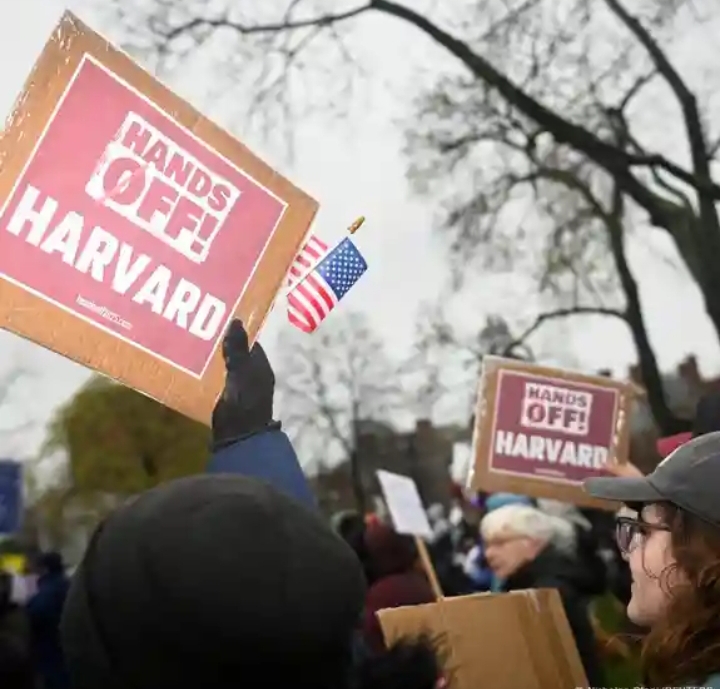Trump administration freezes Harvard’s funding over refusal to curb campus activism, sparking protests, legal action, and wider crackdown on pro-Palestinian students.
Harvard Faces $2.2 Billion Grant Freeze by Trump Administration Over Campus Activism


The United States federal government announced on Monday that it will freeze over $2.2 billion (€1.94 billion) in grants and $60 million in contracts to Harvard University. This action follows Harvard’s decision not to suppress campus activism, a core demand from the Trump administration.
Earlier that day, Harvard formally rejected a series of demands issued by the Trump administration. In response, the administration opted to suspend the university’s federal funding.
The decision was made shortly after Harvard’s interim president, Alan Garber, addressed the university community in a letter stating, “The University will not surrender its independence or relinquish its constitutional rights.”
Garber added, “No government — regardless of which party is in power — should dictate what private universities can teach, whom they can admit and hire, and which areas of study and inquiry they can pursue.”
In a letter sent on Friday, the U.S. Department of Education accused Harvard of failing to uphold the intellectual and civil rights standards that justify federal financial support.
The department further urged Harvard to curb the influence of faculty, staff, and students whom it described as “more committed to activism than scholarship.”
The Trump administration’s increasing pressure prompted a group of Harvard alumni to write an open letter to university leadership. In the letter, they called on Harvard to “legally contest and refuse to comply with unlawful demands that threaten academic freedom and university self-governance.”
“Harvard stood up today for the integrity, values, and freedoms that serve as the foundation of higher education,” said Anurima Bhargava, one of the alumni signatories. “Harvard reminded the world that learning, innovation, and transformative growth will not yield to bullying and authoritarian whims.”
The administration’s move also triggered a weekend protest involving members of the Harvard community, Cambridge residents, and sparked legal action from the American Association of University Professors on Friday.
In their lawsuit, plaintiffs argued that the Trump administration had acted prematurely, failing to follow the procedural requirements under Title VI before slashing grants. They claimed that the administration did not adequately notify the university or Congress about the reduction.
“These sweeping yet indeterminate demands are not remedies targeting the causes of any determination of noncompliance with federal law,” the plaintiffs wrote. “Instead, they overtly seek to impose on Harvard University political views and policy preferences advanced by the Trump administration and commit the University to punishing disfavored speech.”
Meanwhile, students and faculty members at colleges across the United States have reportedly been targeted and detained by federal agents in recent weeks, as part of the Trump administration’s crackdown on campus activism—particularly targeting pro-Palestinian student groups and critics of the Israeli government.
One such case involves Mahmoud Khalil, a Palestinian student at Columbia University. The Trump administration argued that Khalil’s activism could jeopardize U.S. foreign policy, even though his actions were “lawful.”
On Friday, a U.S. immigration judge ruled that Khalil, a permanent U.S. resident and outspoken pro-Palestinian advocate, could be deported on the grounds that his beliefs pose a threat to national security. He was detained on March 8, making him the first student arrested under the Trump administration’s campaign against Gaza war protestors.
Columbia University law professor David Pozen remarked, “The Trump administration’s actions against universities, their researchers, and their students have no recent precedent in U.S. history.”
U.S. Secretary of State Marco Rubio added that the administration has revoked the visas of “maybe more than 300” individuals allegedly connected to pro-Palestinian university protests.

 বাংলা
বাংলা  Spanish
Spanish  Arabic
Arabic  French
French  Chinese
Chinese 
